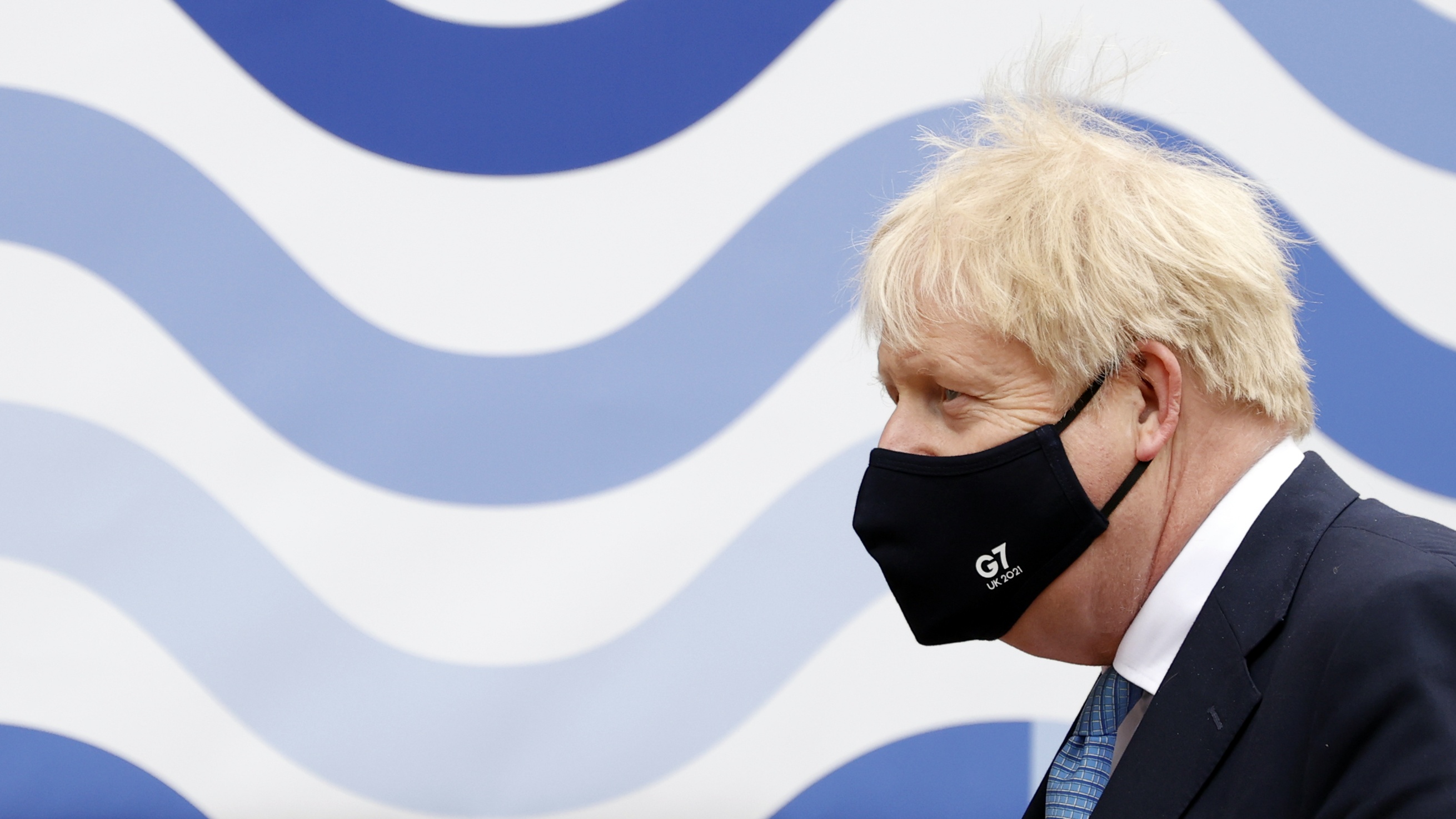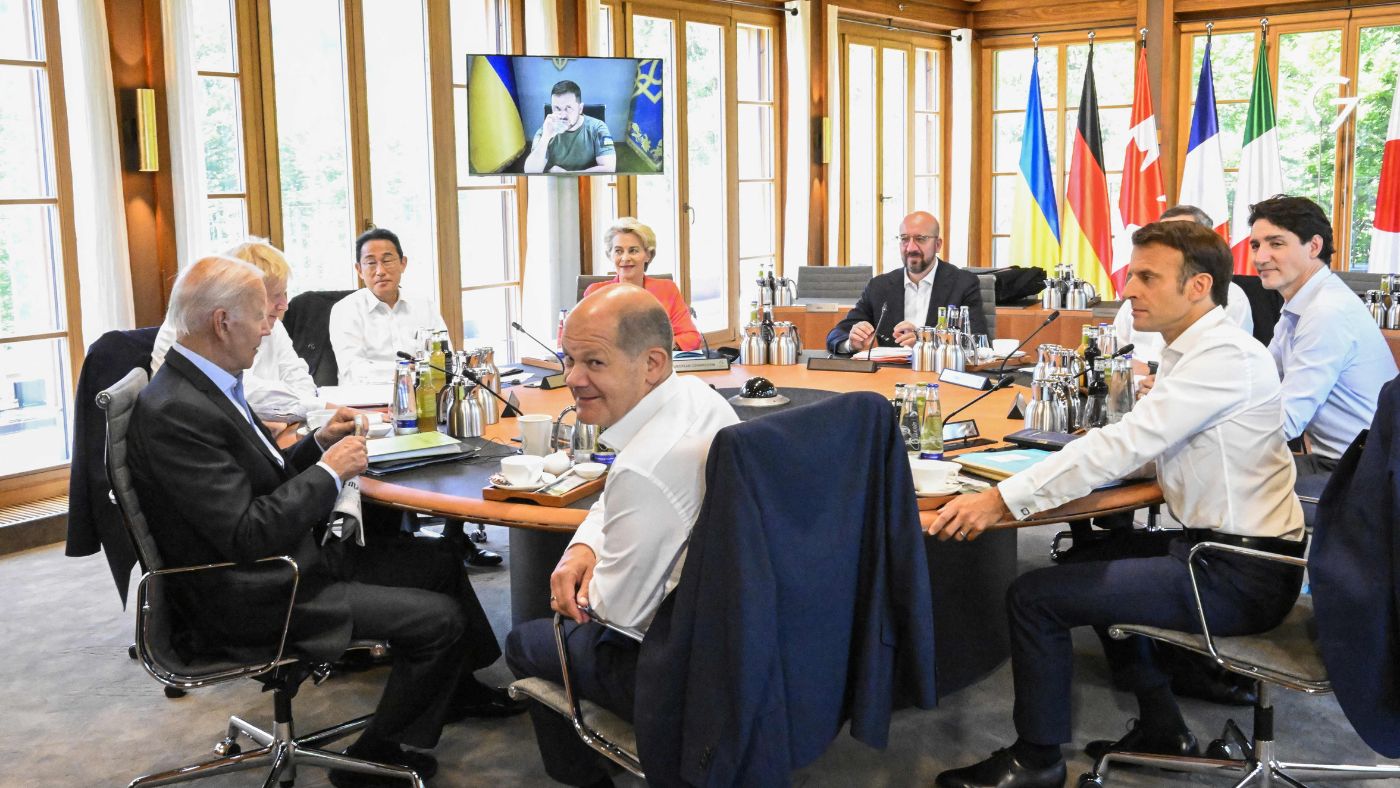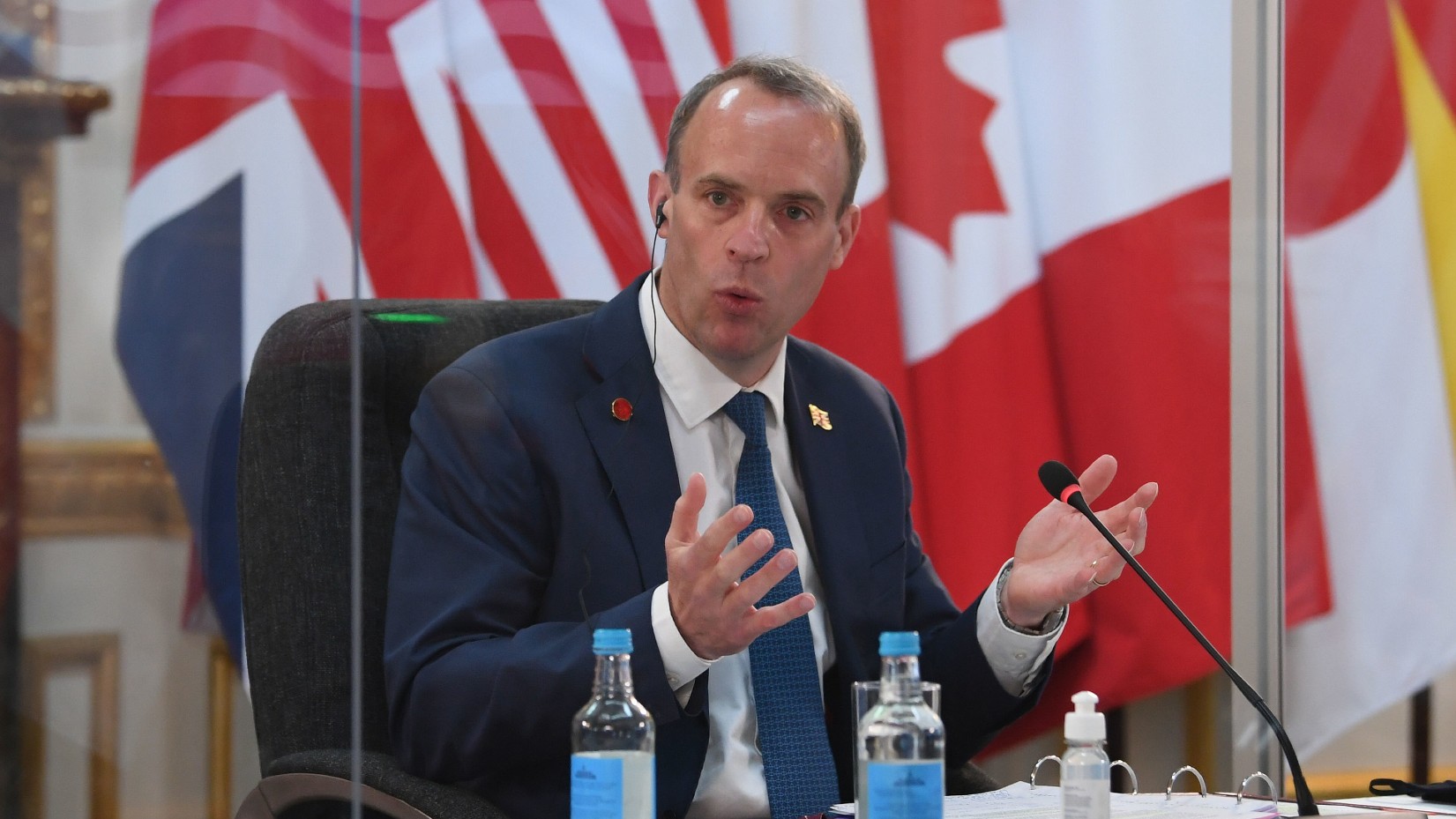G7 Summit 2021: the five thorniest issues
Leaders of economic superpowers seeking agreements on range of challenges facing the world

A free daily email with the biggest news stories of the day – and the best features from TheWeek.com
You are now subscribed
Your newsletter sign-up was successful
The leaders of the UK, Canada, France, Germany, Italy, Japan and the US are hoping to thrash out agreements on how to tackle a range of global issues at a key meeting in Cornwall this week.
With Britain holding the presidency of the G7 group of wealthy nations this year, the summit provides Boris Johnson with the opportunity to play a central role on the world stage. But the prime minister will be contending with some thorny issues, both on the official agenda and behind the scenes, when the three-day meeting in the coastal resort of Carbis Bay kicks off on Friday.
The Week
Escape your echo chamber. Get the facts behind the news, plus analysis from multiple perspectives.

Sign up for The Week's Free Newsletters
From our morning news briefing to a weekly Good News Newsletter, get the best of The Week delivered directly to your inbox.
From our morning news briefing to a weekly Good News Newsletter, get the best of The Week delivered directly to your inbox.
Joe Biden is expected to use a bilateral meeting with Johnson before the gathering to “explicitly express” his support for the Northern Ireland Protocol, The Times reports.
According to the paper, Biden will tell the PM that he views the protocol - agreed in 2019 as part of the Brexit deal - as “integral” to “maintaining long-term peace” in Northern Ireland and in upholding the Good Friday Agreement, of which the US is a guarantor.
The UK is hoping to strike a major trade deal with the US, but the president looks set to warn that the prospects of any such agreement could be damaged if the Ireland issue remains unresolved.
The protocol is also at the centre of a fresh row between Britain and the EU. Chief Brexit negotiator David Frost is locked in a battle with Brussels over the export of chilled meat goods to Northern Ireland from the British mainland - dubbed the “sausage wars” by several newspapers. With negotiations at an impasse, time is running out to resolve the dispute before Frost joins Johnson at the official opening of the G7 summit on Friday.
A free daily email with the biggest news stories of the day – and the best features from TheWeek.com
Foreign aid cuts
Johnson is also locking horns with his own MPs over foreign aid cuts. Tory rebels are opposing the slashing of the government’s target of 0.7% of gross national income (GNI) to 0.5% this year.
The cuts - which equate to more than £4bn - have put the PM on a “collision course” with several senior Conservative backbenchers and oppositions MPs, who point out that the aid spending reduction contradicts a manifesto commitment made by the Tories in 2019, says the BBC.
Johnson narrowly avoided a humiliating Commons defeat over the issue on Monday, when Speaker Lindsay Hoyle denied a vote on an amendment to reverse the cuts. Hoyle granted an emergency debate on the issue, however, at which former Tory leader Theresa May said that the cuts “will have a devastating impact on the poorest in the world and damage the UK” ahead of the G7 summit.
Despite that warning, a Downing Street spokesperson insisted yesterday that the government has “no plans to bring forward a vote” .
Post-Brexit Britain
The G7 talks offer Johnson a “truly golden opportunity” to present his vision of post-Brexit Britain as “a champion of the liberal democratic world and protector of Western values”, says CNN.
Many other countries view Brexit as an “inward-looking project carried out by a nation hostile to the outside world”, the US news network continues. But the summit provides a chance “to hit something of a reset button on Britain's reputation overseas on the grandest stage of all”.
Johnson’s camp is “confident that hosting the G7 is going to be a PR triumph for Global Britain”, adds CNN. But while they are “probably right”, the Tory leader “is a particularly gaffe-prone politician and has been caught out on numerous occasions for saying wildly inappropriate things”.
Vaccinations
G7 countries are facing increasing pressure to help end the global pandemic by ensuring countries worldwide have access to Covid-19 vaccines. In a letter seen by The Guardian, more than 100 former prime ministers, presidents and foreign ministers have called on G7 leaders to pay two-thirds of the $66bn (£46.5bn) needed to vaccinate the populations of low-income nations against the coronavirus.
Johnson has pledged to urge his G7 counterparts to “rise to the greatest challenge of the postwar era” by “vaccinating the world by the end of next year”. The UK has already donated £548m in aid money to the Covax vaccine-sharing scheme. But the BBC reports that while the US, France, Germany, Italy and Japan “have all said how many doses they will donate to Covax”, the UK has yet to put a figure on its planned contribution.
Health Secretary Matt Hancock said on Friday that vaccinating children in the UK would take priority over sending doses abroad.
Climate change is likely to be top of the agenda at the talks in Cornwall. The Times reports that Johnson “will push G7 leaders to back a new climate change plan to help developing countries to decarbonise their economies and limit global warming”.
The PM is reportedly aiming to reach an agreement to support large-scale renewable energy projects across Africa and parts of Asia. But according to the newspaper, Chancellor Rishi Sunak is “resisting any commitment to provide new UK money before the autumn spending review”.
Securing the backing of both the Treasury and fellow G7 nations is a crucial step in realising Johnson's ambitions for the COP26 climate change conference, which he will host in Glasgow later this year. The British leader is hoping to win the backing of developing countries for a commitment to limit global warming to 1.5C.
-
 How to Get to Heaven from Belfast: a ‘highly entertaining ride’
How to Get to Heaven from Belfast: a ‘highly entertaining ride’The Week Recommends Mystery-comedy from the creator of Derry Girls should be ‘your new binge-watch’
-
 The 8 best TV shows of the 1960s
The 8 best TV shows of the 1960sThe standout shows of this decade take viewers from outer space to the Wild West
-
 Microdramas are booming
Microdramas are boomingUnder the radar Scroll to watch a whole movie
-
 ‘G7 leaders missed a golden opportunity’
‘G7 leaders missed a golden opportunity’Instant Opinion Your digest of analysis from the British and international press
-
 ‘In the UK, class presents the biggest barrier to ambition and talent’
‘In the UK, class presents the biggest barrier to ambition and talent’Instant Opinion Your digest of analysis and commentary from the British and international press
-
 ‘I have no problem with a holiday in Britain - it’s everyone else’
‘I have no problem with a holiday in Britain - it’s everyone else’Instant Opinion Your digest of analysis and commentary from the British and international press
-
 Five ways the G7 summits will test ‘Global Britain’ plans
Five ways the G7 summits will test ‘Global Britain’ plansIn the Spotlight Foreign leaders meeting face to face in London today for first time in two years